
Opinions
12:45, 26-Aug-2017
Opinion: Shared economy must get past growing pains
By Liu Jianxi from Global Times
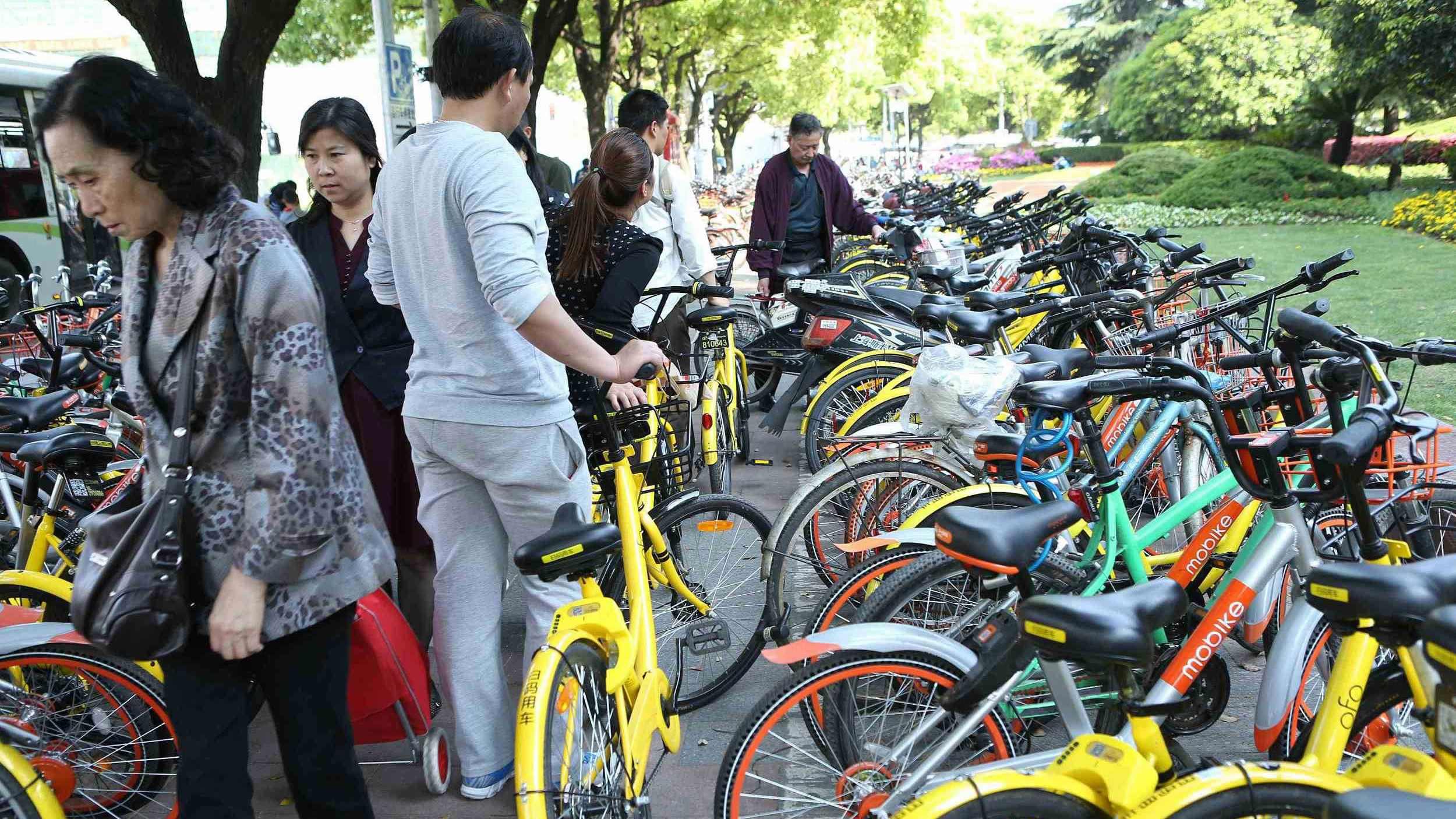
Undeniably, the shared economy has become an indispensable part of our lives. People pay one yuan to ride the "last kilometer" from the subway to work. They rent an umbrella to get home through heavy rains. They work out in a tiny shared gym near their office. However, authorities in Shanghai decided that sharing baby strollers was a step too far. They recently suspended such a scheme just two days after it started.
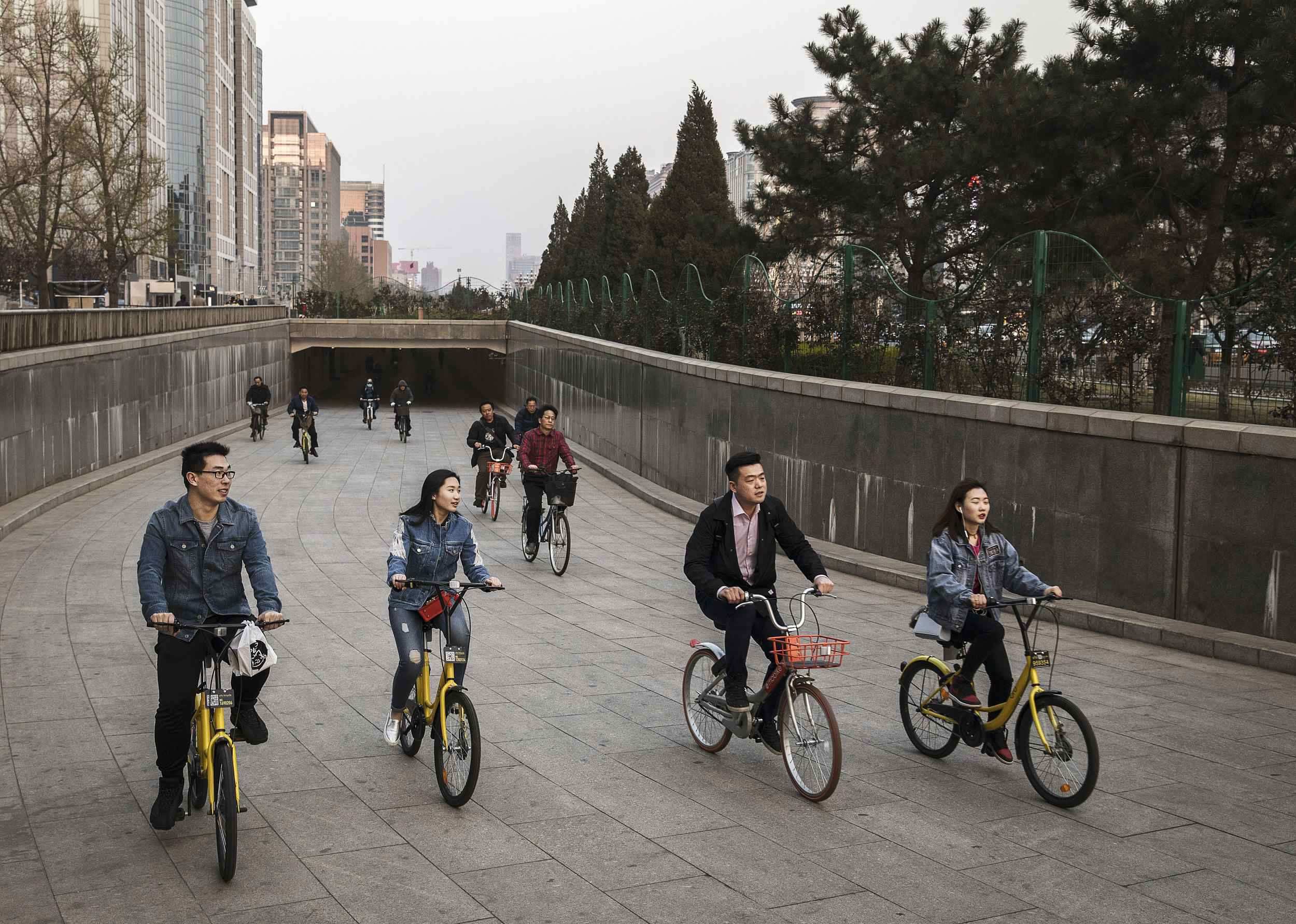
Public bike-sharing services have made people's lives easier, but have also caused problems on cities' streets. /VCG Photo
Public bike-sharing services have made people's lives easier, but have also caused problems on cities' streets. /VCG Photo
Like bike-sharing schemes that have sprung up across China, Dimeng Technology, the service operator, offered 500 baby strollers for hire across Pudong New District in Shanghai. Users will be needed to register, have their names authenticated, and put down a 99 yuan deposit. But after two days of operation, the scheme was banned by the local government for lacking permission from authorities. The measures by Shanghai to curb the spread of vehicle-hiring services have thrust the issue of the excessive use of the sharing economy into the limelight.
The baby strollers and all other shared schemes are making people's lives easier. However, the boom in sharing services has generated complaints about vandalism, parking congestion and traffic violations. Vehicles are being sabotaged, scattered in a disorderly way and eventually abandoned in ditches. The QR codes, used to unlock the vehicles, have been scratched or painted over. What's more, while users need to pay 99 yuan as a deposit to use the stroller, buying the same stroller only costs 80 yuan online. Many argue that vehicle-sharing is just the latest marketing gimmick.
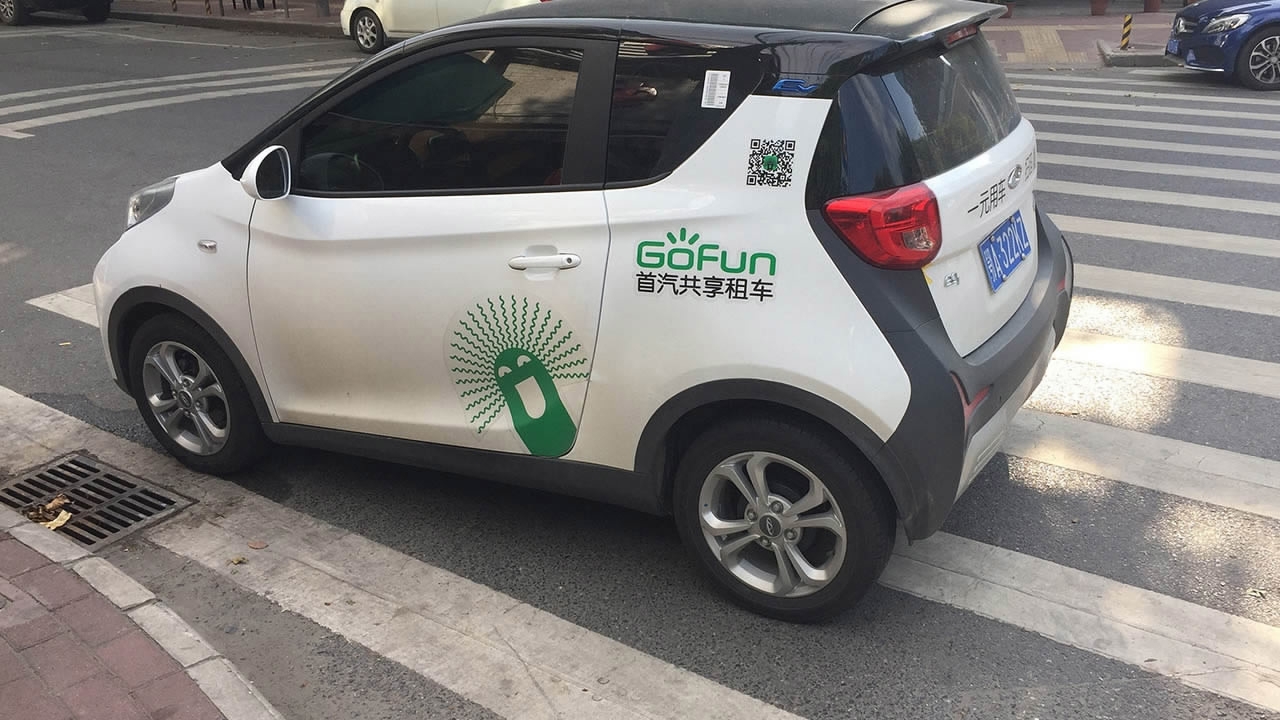
Vehicle-sharing is an emerging economic phenomenon in China, and it is natural for newborns to get sick. Despite the problems, we need to view the shared economy in an objective way.
In many Chinese cities, even the first-tier ones, public facilities have failed to address citizens' quality of life demands. Under outdated developmental ideas, urban design in some cities is still far from perfect. For instance, "the last kilometer" between public transportation stops and companies is always a hassle for many white-collar workers, especially when they are running late. The long wait for a bus is a nightmare on freezing winter days.
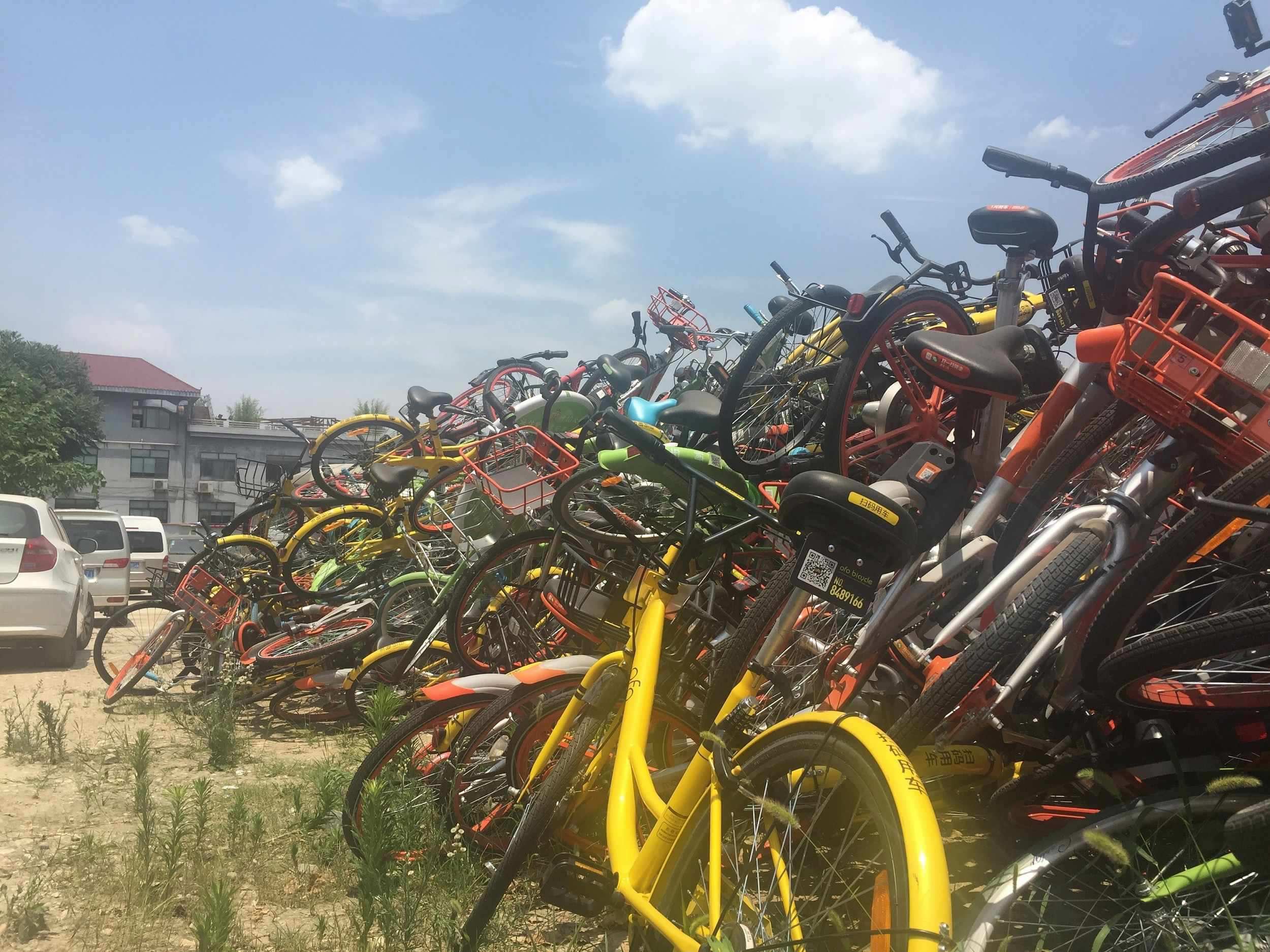
Bikes temporarily detained for illegal parking in Xi'an, northwest China's Shaanxi Province, June 2017. /VCG Photo
Bikes temporarily detained for illegal parking in Xi'an, northwest China's Shaanxi Province, June 2017. /VCG Photo
Vehicle sharing caters to public needs and has effectively balanced demand and supply. The shared economy is undoubtedly an efficient way to allocate resources, accommodating the needs of a maximized number of people. It ought to be the pride of a highly civilized society.
Meanwhile, shared vehicles are much more convenient than public transportation. While people have to walk 10 minutes to the stop and wait for another five minutes for a bus, sometimes even longer in bad weather, a shared vehicle is readily accessible at nearly every corner of the city. It takes people only seconds to scan the QR code to unlock.
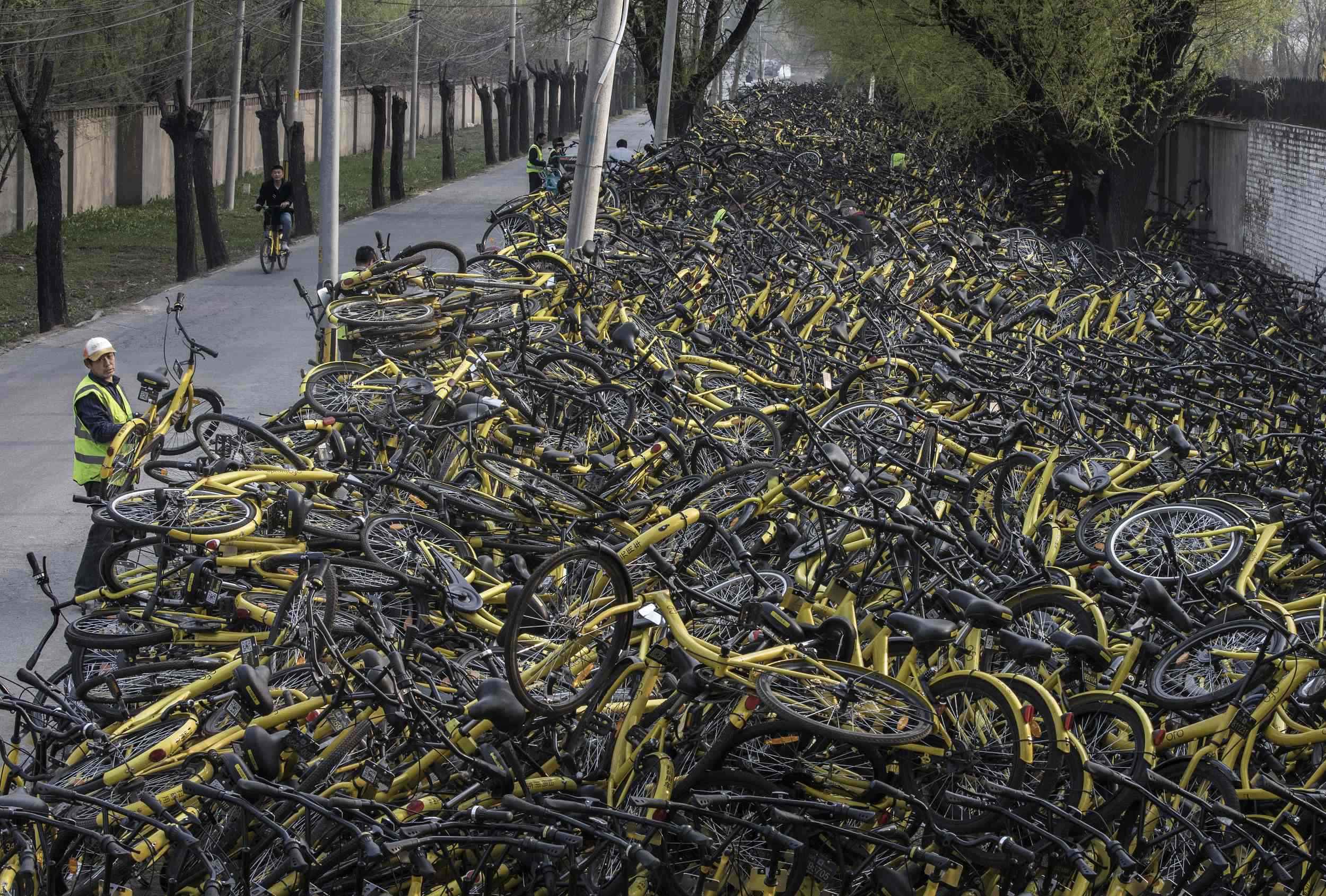
Broken bikes in piles on a street in Beijing, March 2017. /VCG Photo
Broken bikes in piles on a street in Beijing, March 2017. /VCG Photo
Citizens and the government should have an open mind toward the shared economy. Being sick can help build a baby's immune system, and we should give vehicle sharing some time to find its footing. After all, new things always come with various unforeseeable problems. Patience is needed for the shared economy to develop and flourish in China.
(This piece was originally published on Global Times. The author is a reporter with the Global Times. The article reflects the author's opinion, and not necessarily the views of CGTN.)
Source(s): Global Times

SITEMAP
Copyright © 2018 CGTN. Beijing ICP prepared NO.16065310-3
Copyright © 2018 CGTN. Beijing ICP prepared NO.16065310-3